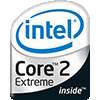
Qualcomm Snapdragon 660 Benchmark, Test and specs
Last updated:
The Qualcomm Snapdragon 660 has 8 cores with 8 threads and is based on the 5. gen of the Qualcomm Snapdragon series. The processor was released in Q2/2017. The Qualcomm Snapdragon 660 scores 330 points in the Geekbench 5 single-core benchmark. In the Geekbench 5 multi-core benchmark, the result is 1,356 points.

| Name: | Qualcomm Snapdragon 660 |
|---|---|
| Family: | Qualcomm Snapdragon (102) |
| CPU group: | Qualcomm Snapdragon 660 (2) |
| Architecture: | Kryo 260 |
| Segment: | Mobile |
| Generation: | 5 |
| Predecessor: | -- |
| Successor: | -- |
CPU Cores and Base Frequency
The Qualcomm Snapdragon 660 has 8 CPU cores and can calculate 8 threads in parallel. The clock frequency of the Qualcomm Snapdragon 660 is 2.20 GHz. The number of CPU cores greatly affects the speed of the processor and is an important performance indicator.
| CPU Cores / Threads: | 8 / 8 |
|---|---|
| Core architecture: | hybrid (big.LITTLE) |
| A-Core: | 4x Kryo 260 Gold |
| B-Core: | 4x Kryo 260 Silver |
| Hyperthreading / SMT: | No |
|---|---|
| Overclocking: | No |
| A-Core Frequency: | 2.20 GHz |
| B-Core Frequency: | 1.84 GHz |
Artificial Intelligence and Machine Learning
Processors with the support of artificial intelligence (AI) and machine learning (ML) can process many calculations, especially audio, image and video processing, much faster than classic processors. Algorithms for ML improve their performance the more data they have collected via software. ML tasks can be processed up to 10,000 times faster than with a classic processor.
| AI hardware: | Qualcomm AI engine |
|---|---|
| AI specifications: | Hexagon 680 |
Internal Graphics
The Qualcomm Snapdragon 660 has integrated graphics, called iGPU for short. Specifically, the Qualcomm Snapdragon 660 uses the Qualcomm Adreno 512, which has 128 texture shaders and -- execution units. The iGPU uses the system's main memory as graphics memory and sits on the processor's die.
| GPU name: | Qualcomm Adreno 512 |
|---|---|
| GPU frequency: | 0.60 GHz |
| GPU (Turbo): | 0.60 GHz |
| Compute units: | -- |
| Shader: | 128 |
| Hardware Raytracing: | No |
| Release date: | Q4/2015 |
| Max. displays: | 0 |
|---|---|
| Generation: | 5 |
| Direct X: | 11 |
| Technology: | 14 nm |
| Max. GPU Memory: | -- |
| Frame Generation: | No |
Hardware codec support
A photo or video codec that is accelerated in hardware can greatly accelerate the working speed of a processor and extend the battery life of notebooks or smartphones when playing videos.
| h265 / HEVC (8 bit): | Decode |
|---|---|
| h265 / HEVC (10 bit): | No |
| h264: | Decode |
| VP8: | Decode |
| VP9: | Decode |
| AV1: | No |
|---|---|
| AVC: | No |
| VC-1: | Decode |
| JPEG: | Decode |
Memory & PCIeThe processor can use up to 8 GB memory in 2 (Dual Channel) memory channels. The maximum memory bandwidth is 14.9 GB/s. The memory type as well as the amount of memory can greatly affect the speed of the system. |
|
| Memory type: | Memory bandwidth: |
|---|---|
| LPDDR4-3733 | 14.9 GB/s |
| Max. Memory: | 8 GB |
| Memory channels: | 2 (Dual Channel) |
| ECC: | No |
| PCIe: | |
| PCIe Bandwidth: | -- |
Thermal ManagementThe thermal design power (TDP for short) of the processor is . The TDP specifies the necessary cooling solution that is required to cool the processor sufficiently. The TDP usually gives a rough idea of the actual power consumption of the CPU. |
|
|---|---|
| TDP (PL1 / PBP): | |
| TDP (PL2): | -- |
| TDP up: | -- |
| TDP down: | -- |
| Tjunction max.: | -- |
Technical details
The Qualcomm Snapdragon 660 is made in 14 nm. The smaller the manufacturing process of a CPU, the more modern and energy-efficient it is. Overall, the processor has 0.00 MB cache. A large cache can greatly speed up the processor's speed in some cases such as games.
| Technology: | 14 nm |
|---|---|
| Chip design: | Chiplet |
| Socket: | -- |
| L2-Cache: | -- |
| L3-Cache: | -- |
| AES-NI: | No |
| Operating systems: | Android |
| Virtualization: | None |
|---|---|
| Instruction set (ISA): | Armv8-A (64 bit) |
| ISA extensions: | -- |
| Release date: | Q2/2017 |
| Release price: | -- |
| Part Number: | SDM660 |
| Documents: | Technical data sheet |
Rate this processor
Benchmark results

The benchmark results for the Qualcomm Snapdragon 660 have been carefully checked by us. We only publish benchmark results that have been created by us or that have been submitted by a visitor and then checked by a team member. All results are based on and fullfill our benchmark guidelines.
Geekbench 5, 64bit (Single-Core)
Geekbench 5 is a cross plattform benchmark that heavily uses the systems memory. A fast memory will push the result a lot. The single-core test only uses one CPU core, the amount of cores or hyperthreading ability doesn't count.
|
|
HiSilicon Kirin 950
8C 8T @ 2.30 GHz |
||

|
Intel Celeron J3455
4C 4T @ 2.30 GHz |
||

|
Samsung Exynos 8890
8C 8T @ 2.60 GHz |
||
|
|
Qualcomm Snapdragon 660
8C 8T @ 2.20 GHz |
||

|
Intel Celeron E3200
2C 2T @ 2.40 GHz |
||
|
|
HiSilicon Kirin 955
8C 8T @ 2.50 GHz |
||

|
Samsung Exynos 9610
8C 8T @ 2.30 GHz |
||
Geekbench 5, 64bit (Multi-Core)
Geekbench 5 is a cross plattform benchmark that heavily uses the systems memory. A fast memory will push the result a lot. The multi-core test involves all CPU cores and taks a big advantage of hyperthreading.

|
Intel Core i3-6100U
2C 4T @ 2.30 GHz |
||

|
Intel Core i5-3610ME
2C 4T @ 2.70 GHz |
||

|
Intel Core 2 Extreme QX6850
4C 4T @ 3.00 GHz |
||
|
|
Qualcomm Snapdragon 660
8C 8T @ 2.20 GHz |
||

|
AMD A8-3800
4C 4T @ 2.70 GHz |
||

|
Intel Celeron G3930T
2C 2T @ 2.70 GHz |
||

|
UNISOC T700
8C 8T @ 1.80 GHz |
||
Geekbench 6 (Single-Core)
Geekbench 6 is a benchmark for modern computers, notebooks and smartphones. What is new is an optimized utilization of newer CPU architectures, e.g. based on the big.LITTLE concept and combining CPU cores of different sizes. The single-core benchmark only evaluates the performance of the fastest CPU core, the number of CPU cores in a processor is irrelevant here.

|
MediaTek Helio X30
10C 10T @ 2.60 GHz |
||

|
Intel Celeron 2950M
2C 2T @ 2.00 GHz |
||

|
Intel Celeron J4105
4C 4T @ 2.50 GHz |
||
|
|
Qualcomm Snapdragon 660
8C 8T @ 2.20 GHz |
||

|
Qualcomm Snapdragon 660 non LTE
8C 8T @ 2.20 GHz |
||

|
Intel Core i3-2312M
2C 4T @ 2.10 GHz |
||

|
Intel Core i3-2310M
2C 4T @ 2.10 GHz |
||
Geekbench 6 (Multi-Core)
Geekbench 6 is a benchmark for modern computers, notebooks and smartphones. What is new is an optimized utilization of newer CPU architectures, e.g. based on the big.LITTLE concept and combining CPU cores of different sizes. The multi-core benchmark evaluates the performance of all of the processor's CPU cores. Virtual thread improvements such as AMD SMT or Intel's Hyper-Threading have a positive impact on the benchmark result.

|
Intel Pentium G4560T
2C 4T @ 2.90 GHz |
||

|
Intel Core i5-3380M
2C 4T @ 2.90 GHz |
||

|
Intel Pentium G4500
2C 2T @ 3.50 GHz |
||
|
|
Qualcomm Snapdragon 660
8C 8T @ 2.20 GHz |
||

|
Qualcomm Snapdragon 660 non LTE
8C 8T @ 2.20 GHz |
||

|
Intel Celeron N5100
4C 4T @ 2.20 GHz |
||

|
Qualcomm Snapdragon 670
8C 8T @ 2.00 GHz |
||
iGPU - FP32 Performance (Single-precision GFLOPS)
The theoretical computing performance of the internal graphics unit of the processor with simple accuracy (32 bit) in GFLOPS. GFLOPS indicates how many billion floating point operations the iGPU can perform per second.

|
Intel Celeron 3205U
Intel HD Graphics (Broadwell GT1) @ 0.80 GHz |
||

|
Intel Celeron 3755U
Intel HD Graphics (Broadwell GT1) @ 0.80 GHz |
||

|
Intel Pentium 3805U
Intel HD Graphics (Broadwell GT1) @ 0.80 GHz |
||
|
|
Qualcomm Snapdragon 660
Qualcomm Adreno 512 @ 0.60 GHz |
||

|
Intel Celeron J3060
Intel HD Graphics 400 @ 0.70 GHz |
||

|
Intel Celeron J3160
Intel HD Graphics 400 @ 0.70 GHz |
||

|
Intel Celeron J4125
Intel UHD Graphics 600 @ 0.75 GHz |
||
AnTuTu 8 Benchmark
The AnTuTu 8 Benchmark measures the performance of a SoC. AnTuTu benchmarks the CPU, GPU, Memory as well as the UX (User Experience) by simulating browser and app usage. AnTuTu can benchmark any ARM CPU that runs under Android or iOS. Devices may not be directly compareable if the benchmark has been performed under different operating systems.
In the AnTuTu 8 benchmark, the single-core performance of a processor is only slightly weighted. The evaluation consists of the multi-core performance of the processor, the speed of the RAM and the performance of the internal graphics.
In the AnTuTu 8 benchmark, the single-core performance of a processor is only slightly weighted. The evaluation consists of the multi-core performance of the processor, the speed of the RAM and the performance of the internal graphics.

|
MediaTek Helio P60
8C 8T @ 2.00 GHz |
||
|
|
HiSilicon Kirin 710A
8C 8T @ 2.00 GHz |
||

|
MediaTek Helio P65
8C 8T @ 2.00 GHz |
||
|
|
Qualcomm Snapdragon 660
8C 8T @ 2.20 GHz |
||

|
Qualcomm Snapdragon 660 non LTE
8C 8T @ 2.20 GHz |
||

|
MediaTek Kompanio 500
8C 8T @ 2.00 GHz |
||

|
Qualcomm Snapdragon 636
8C 8T @ 1.80 GHz |
||
Estimated results for PassMark CPU Mark
Some of the CPUs listed below have been benchmarked by CPU-monkey. However the majority of CPUs have not been tested and the results have been estimated by a CPU-monkey’s secret proprietary formula. As such they do not accurately reflect the actual Passmark CPU mark values and are not endorsed by PassMark Software Pty Ltd.

|
AMD Athlon II X4 651K
4C 4T @ 3.00 GHz |
||

|
AMD A9-9420
2C 2T @ 3.00 GHz |
||

|
Intel Core i5-4260U
2C 4T @ 2.70 GHz |
||
|
|
Qualcomm Snapdragon 660
8C 8T @ 2.20 GHz |
||

|
Qualcomm Snapdragon 660 non LTE
8C 8T @ 2.20 GHz |
||

|
AMD Athlon II X4 651
4C 4T @ 3.00 GHz |
||

|
Intel Pentium G4400T
2C 2T @ 2.90 GHz |
||
Benchmarks

Geekbench 5 (SC)
2,488 entries
2,488 entries

Geekbench 5 (MC)
2,461 entries
2,461 entries

Geekbench 6 (SC)
1,755 entries
1,755 entries

Geekbench 6 (MC)
1,703 entries
1,703 entries

FP32 SP (iGPU)
2,026 entries
2,026 entries

AnTuTu 8 Benchmark
118 entries
118 entries

PassMark CPU-Mark
2,392 entries
2,392 entries
Popular comparisons
back to index





